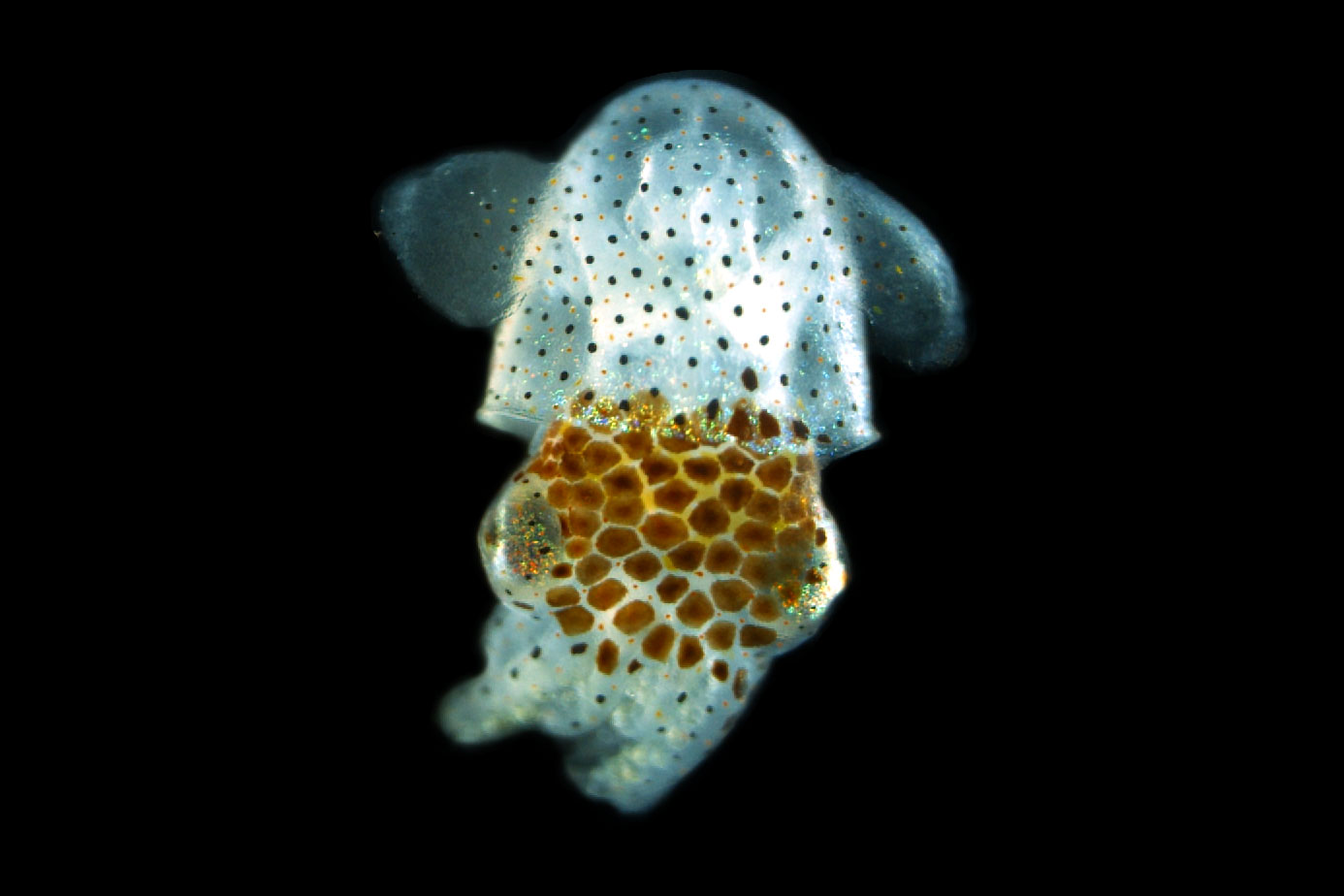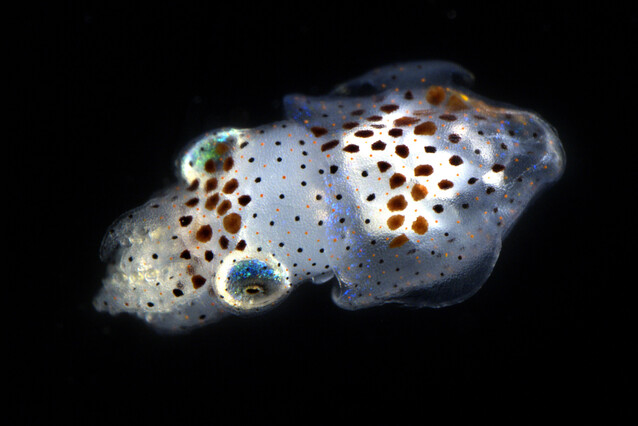Squid genome sheds light on extraordinary brain evolution
Squids, octopus, and cuttlefish have evolved the largest nervous systems amongst invertebrates alongside many adaptations to their local habitats. An international team of scientists has examined the organisation and regulation of the genome of the Hawaiian bobtail squid to investigate the molecular basis of these unique traits. They found that the squid genome has undergone considerable rearrangements in the course of evolution, and that it harbours hundreds of new gene clusters, including some associated with the development of the nervous system. Their findings are now published in the journal Nature Communications.
Squids, octopus, and cuttlefish belong to a highly intelligent group of sea creatures, the cephalopods. After forming a distinct branch on the evolutionary tree of molluscs, they have evolved unique morphological and physiological features such as rapid changes in skin texture and colour, a sharp beak to chop up prey, arms lined with suckers, and complex eyes. Most remarkably, cephalopods have developed the most complex nervous systems amongst invertebrates.
How these animals acquired their characteristics has remained unclear, but the genomics era has brought about new tools to explore this question. In an international collaboration including the labs of Elly Tanaka at the IMP and Oleg Simakov at the University of Vienna, scientists have assembled the genome of the Hawaiian bobtail squid, a tiny animal about half the size of a teabag. In their study now published in the journal Nature Communications, the researchers reveal the unique features of cephalopod genomes and bring up a possible explanation for their remarkable evolution.

A possible source for the squid’s sophisticated intelligence
Squids and octopuses are renowned for their cognitive abilities – from untying knots to opening jars and using shells and rocks as a disguise. With their hundreds of millions of neurons shared between their head and their arms, cephalopods are a good match to dogs and surpass other invertebrates by a long shot.
In their study, the researchers propose that the rearrangement of genes in the squid genome may be at the source of the cephalopods’ intelligence.
“We compared the squid genome to that of a scallop, and we found that many genes that were scattered in the scallop genome had come together on specific areas of the squid chromosomes. These new gene clusters form regulatory units. This means that they can interact with each other and alter the animal’s physiology,” explains Akane Kawaguchi, co-first author and postdoc in the lab of Elly Tanaka.
The researchers identified hundreds of novel gene clusters in the squid that were absent in other animals.
“One of the gene clusters in the squid genome contains five major genes involved in the development of the nervous system,” says Kawaguchi. “My dream experiment is to test whether inactivating those genes in squid embryos impairs their development to the point where their nervous system resembles that of a scallop – that will be a project for the future.”
“Cephalopod genomes have undergone large-scale restructuration in the course of evolution – to an extent that is rare among animals,” says Elly Tanaka, senior scientist at the IMP. “Cephalopod molecular biology is largely unexplored, and I was so pleased to work with our colleagues to bring forth this assembly to study.”
Original publication
Hannah Schmidbaur*, Akane Kawaguchi*, Tereza Gerguri, Xiao Fu, Oi Pui Hoang, Bob Zimmermann, Elena Ritschard, Anton Weissenbacher, Jamie Foster, Spencer Nyholm, Paul Bates, Caroline Albertin, Elly Tanaka, Oleg Simakov: “Emergence of novel cephalopod gene regulation and expression through large-scale genome reorganization.” Nature Communications (2022). DOI: s41467-022-29694-7.
*These authors contributed equally to the study.
Further reading
Research in the lab of Elly Tanaka
Record-breaking lungfish genome reveals how vertebrates conquered land
